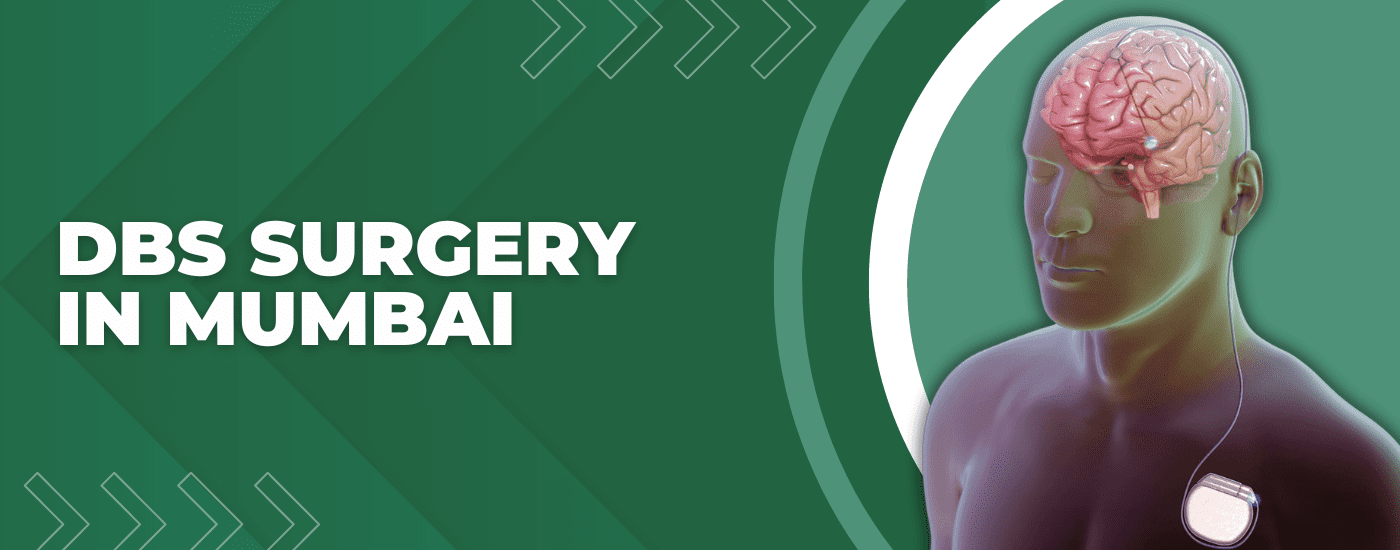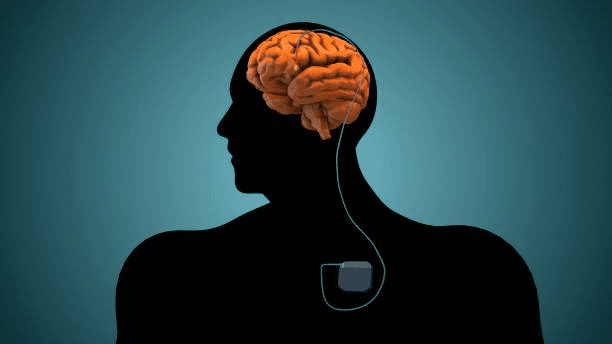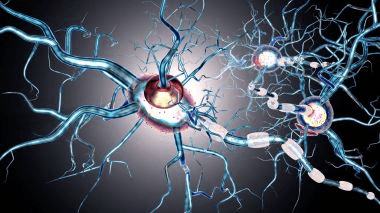
DBS Surgery in Mumbai
When neurological disorders disrupt the delicate equilibrium of daily life, hope may feel out of reach. During these challenging times, assistance and intervention from specialized neurological care prove to be essential.
Dr. Gurneet Singh Sawhney, one of the best neurosurgeon in Mumbai, notes:
“Neurological conditions not only impair physical abilities but can also affect emotional well-being and social interactions. They can alter a person’s sense of self and their connections with others. This is where the transformative potential of Deep Brain Stimulation surgery comes into play.”
What is Deep Brain Stimulation
DBS is a surgical process for treating various neurological problems. This innovative procedure involves placing a neurostimulator device to send electrical signals to brain areas responsible for movement.
Dr. Gurneet Singh Sawhney, a sought-after neurosurgeon for DBS Surgery in Mumbai, explains:
“Similar to a cardiac pacemaker, a neurostimulator regulates brain activity with electric pulses. DBS involves placing electrodes in targeted brain regions and adjusting the electrical impulses to notably reduce symptoms. Often, this treatment greatly reduces reliance on medications.”
Let’s delve into the various neurological disorders that DBS can help manage.
Conditions Treatable by DBS Surgery
DBS surgery modulates brain activity to alleviate symptoms in various neurological disorders.
Parkinson’s Disease
Deep brain surgery for Parkinson’s targets specific brain regions affecting movement.
Essential Tremor
By stimulating the brain’s motor pathways, DBS helps diminish the uncontrollable shaking associated with Essential Tremor.
Dystonia
DBS regulates signals in brain areas responsible for muscle control, decreasing involuntary movements in Dystonia.
Obsessive-Compulsive Disorder
DBS modifies the neural circuits involved in OCD, potentially reducing compulsions and anxiety significantly.
Epilepsy
DBS surgery for epilepsy targets epileptogenic zones, lowering seizure frequency and intensity.
Depression
DBS offers hope for those with treatment-resistant depression by improving emotional regulation.
Tourette Syndrome
DBS can decrease the frequency and severity of tics in Tourette Syndrome by adjusting dysfunctional brain circuits.
Alzheimer’s Disease
Early evidence suggests DBS may enhance memory and cognitive function by stimulating brain areas affected by Alzheimer’s.
Cluster Headaches
DBS targets hypothalamic regions to reduce the occurrence and pain of cluster headaches, offering relief to sufferers.
Traumatic Brain Injury
DBS may aid in recovering cognitive and motor functions in patients with persistent impairments from brain injuries.
Curious about the surgical process? Let’s explore that in the following section.
DBS Surgery Procedure
DBS in neurosurgery is a precise, controlled procedure that involves several key steps. Here are the standard steps during DBS Surgery in Mumbai:
Pre-Surgical Assessment:
Initially, the doctor conducts a thorough evaluation to determine if DBS is suitable for the patient. This involves neurological exams, medical history reviews, and brain imaging studies to map the areas of the brain to target.
Anesthesia:
The neurosurgeon administers a small dose of anesthesia to the patient to ensure comfort during the surgery.
Installing the Frame:
On the day of surgery, the patient’s head is secured in a fixed position using a unique frame to ensure accuracy during the procedure.
Imaging with the frame:
With the frame installed the patient is taken for MRI scan and a frame based image is taken.
Planning and Mapping of the Brain:
The CT scan or MRI image is put in a planning station to find out the correct position of our electrode placement and we get the X,Y and Z axis points.
Burr Holes:
The surgeon drills small holes in the skull to allow for the insertion of electrodes. The patient may be awake during this part to provide feedback, ensuring the correct positioning of electrodes.
Test Stimulation:
Mild electrical impulses travel through the electrodes. The patient’s responses help confirm that the electrodes are correctly located to control symptoms effectively.
Implanting the Pulse Generator:
The patient is typically put under general anesthesia for the pulse generator’s implantation. The device placement is usually under the skin in the chest.
Connecting the Electrodes:
The brain electrodes are connected to the pulse generator through wires running under the skin, from the head down to the chest.
Programming the Device:
Several weeks after the surgery, the DBS device is programmed to deliver electrical impulses at settings tailored to the patient’s specific needs.
Follow-Up Care:
Regular follow-up visits are crucial for the doctor to monitor the patient’s progress and adjust the stimulation settings as needed.
“As time progresses, patients often see better symptom control, improved motor function, and an overall enhancement in quality of life,” says Dr. Gurneet Singh Sawhney, a seasoned neurosurgeon in India.
Next, let’s explore how DBS is changing lives.
Benefits of DBS
Deep Brain Stimulation (DBS) offers a range of benefits, including:
Symptom Reduction:
DBS can lead to a substantial reduction of symptoms such as tremors, rigidity, stiffness, slowed movement, and walking problems.
Precision Targeting:
The ability to target specific brain areas with electrical impulses means that DBS can effectively manage symptoms without the broad systemic effects of medications.
Decreased Medication:
Many patients experience a significant decrease in the need for medications post-DBS. This can reduce the side effects associated with high doses of medication, such as dyskinesias (involuntary movements) in Parkinson’s disease.
Reversible and Adjustable:
Unlike many surgical interventions, DBS is reversible and adjustable. If necessary, you can turn off or remove the system and adjust the stimulator’s settings according to the patient’s condition or in response to side effects.
Improved Quality of Life:
By alleviating symptoms that limit mobility, DBS allows patients to maintain a more active lifestyle and continue social interactions.
Extended Treatment Option:
DBS offers continued avenues for relief to patients who have become resistant to other treatments.
Potential for Disease Modification:
Research suggests that in conditions like Parkinson’s disease, early intervention with DBS may modify the disease process. It can potentially slow down progression, although more research is needed to confirm these effects.
Are you impressed by the benefits? But what does recovery look like? Let’s look at what patients can expect during the postoperative phase.
Recovery
Here’s an overview of what patients can expect regarding recovery timeline and post-care after undergoing DBS surgery.
Immediate Post-Operative Care:
Patients generally spend one to two days in the hospital to monitor and manage discomfort. Recovery at home involves resting and keeping incision sites clean to prevent infection, with a return to light activities within a week.
Device Activation and Adjustment:
The neurostimulator is typically activated 3 to 4 weeks after surgery. Initial and subsequent visits adjust the device settings to tailor symptom control, crucial for enhancing the therapy’s effectiveness.
Long-Term Management:
Regular follow-ups are essential for adjusting the stimulator and general monitoring. The neurostimulator battery may need replacement depending upon the initial battery used. The range of battery is 5-25 years. The patients should maintain a healthy lifestyle. They may benefit from support groups or counseling to manage the psychological aspects of living with a neurological condition.
With careful adherence to this recovery plan, most patients see significant improvements in their symptoms and overall quality of life.
Are you considering whether DBS is the right option for you or your loved one? Let’s get an idea of its effectiveness.
Success Rates
DBS is an impactful treatment option in the management of debilitating neurological disorders. It has proven highly effective, with success rates varying by condition.
- For Parkinson’s disease, up to 70% of patients experience significant symptom improvement.
- Essential tremor patients often see up to an 80% reduction in tremor amplitude.
- While individual outcomes can vary, most DBS patients report enhanced quality of life and reduced symptoms.
Frequently Asked Questions
What can I expect after DBS surgery?
After DBS surgery, you can expect initial discomfort and swelling at the incision sites. However, this will be followed by a gradual improvement in your symptoms as the device settings are fine-tuned.
How long is the life expectancy after DBS?
Life expectancy after DBS surgery varies depending on the underlying condition being treated. It generally does not directly affect life expectancy; instead, it improves quality of life.
What should I avoid after DBS surgery?
After DBS surgery, you should avoid activities that disrupt the device settings or damage the implant. They include:
- Excessive jolting or movement of the head
- MRI scans outside specific guidelines
- Handling strong electromagnetic fields




